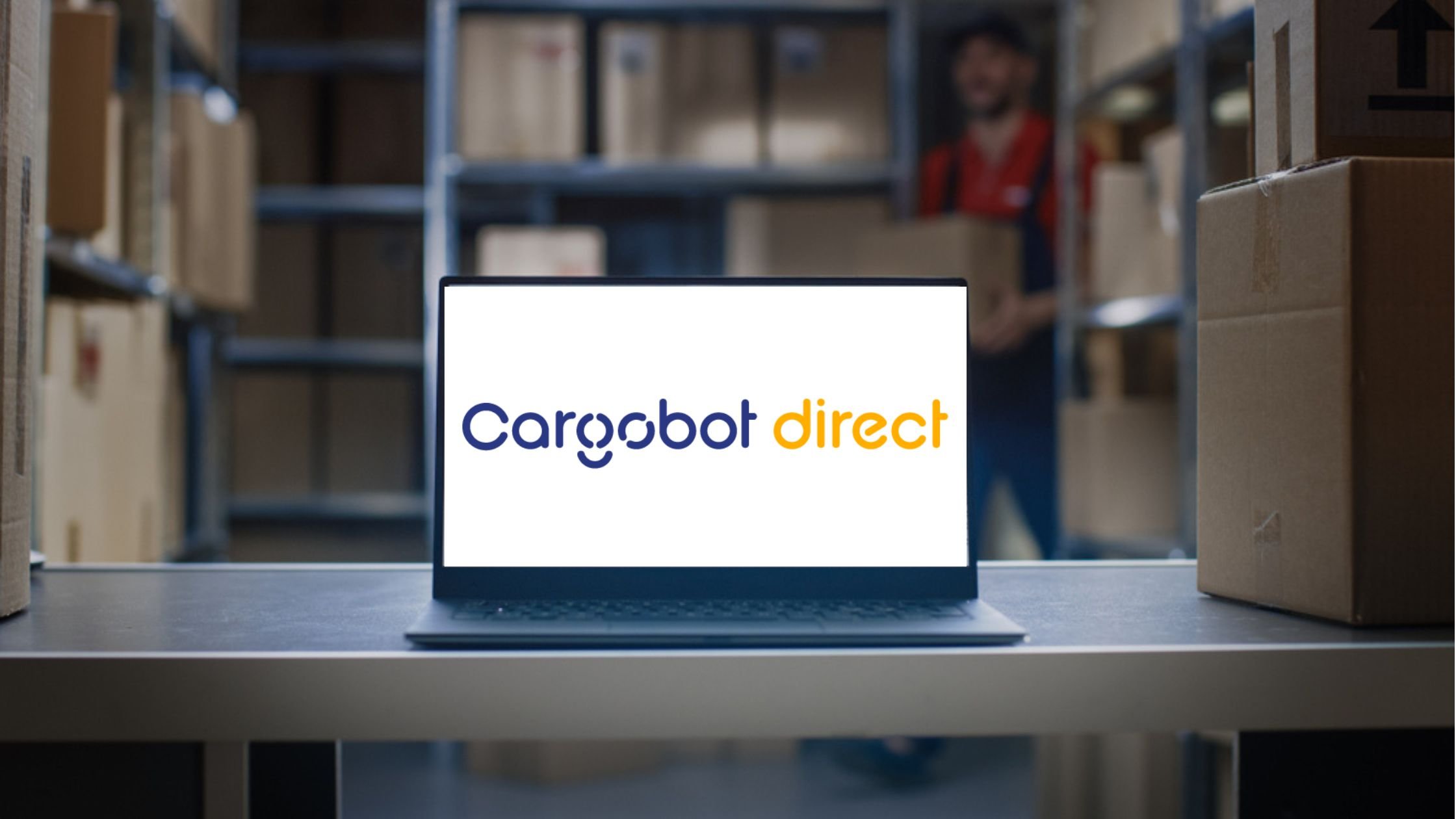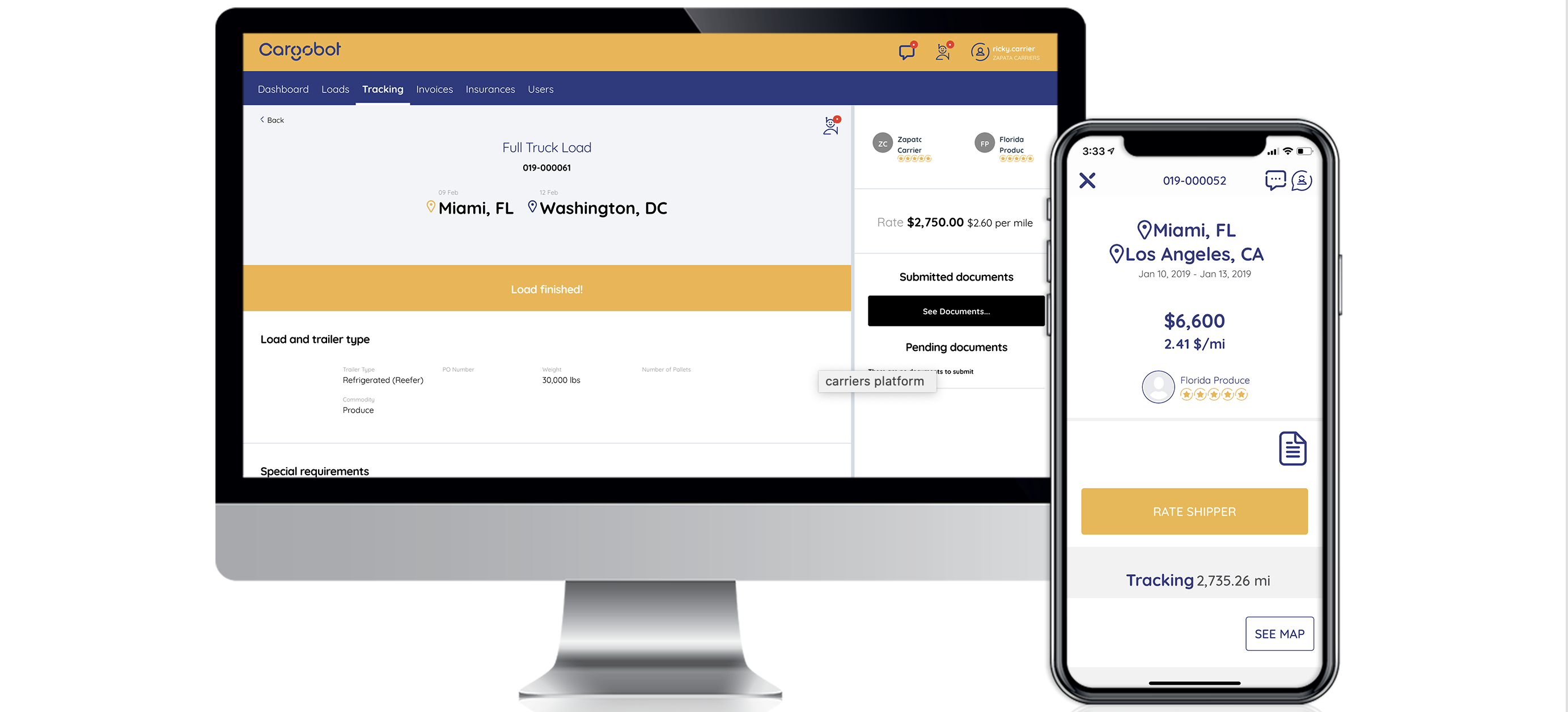How Cargobot Direct Can Help You Quickly Optimize Your Freight Lanes

Finding ways to move products efficiently on different types of freight lanes while meeting deadlines is a necessity for shippers. These lanes play a key role in transporting a wide range of products.
Efficient trucking lanes are essential for reducing transportation costs, improving delivery speed, and enhancing efficiency. Cargobot Direct is a digital solution that can help shippers and carriers swiftly optimize their shipping lanes for the best results.
What Are Freight Lanes?

A freight lane is a common term used in the logistics sector, as they are simply the routes that transport a wide range of goods. Whether it's roads, airways, or sea lanes, shipping lanes form a key part of the entire transportation chain. These pre-established lanes contribute significantly to the smooth movement of products from one location to another.
Characteristics of Freight Lanes
A freight lane is a pathway between the pickup point (origin) and the delivery point (destination).
The frequency at which a carrier operates on a dedicated lane makes it a recognized freight lane. For example, if a carrier frequently moves loads from Miami to Atlanta, then this route becomes their standard shipping lane.
A freight lane isn't confined to a single mode of transportation. These lanes can extend across various mediums, including trucks, trains, planes, and freight ships. Each medium has its unique freight lanes that operators use for optimal efficiency.
Identifying Profitable Freight Lanes
Profitability is a crucial factor for carriers when deciding on their freight lanes. The profitability of a freight lane can depend on several aspects, such as demand and supply dynamics, the balance of inbound and outbound freight, and the operating costs associated with the route.
For example, certain lanes have higher freight demand due to economic activity, making them more lucrative for carriers. On the other hand, routes with lower demand or higher operating costs (fuel, tolls, etc.) might be less profitable.
The Importance of Backhauls
One major consideration in determining the profitability of a freight lane is the opportunity for backhauls. A backhaul is the return trip of a carrier after delivery, ideally with a new load to transport.
Without backhaul, a carrier might have to return empty, resulting in what's known as "deadhead" miles. These are non-revenue generating miles that increase operational costs.
Ultimately, freight lanes are good if they provide ample backhaul opportunities because they are typically more profitable.
How Can Cargobot Direct Help With Freight Lanes?

Cargobot Direct leverages cutting-edge technology to bring transparency to the freight industry. Our digital platform provides real-time updates and comprehensive data to both shippers and carriers.
Whether its tracking short-haul shipping lanes across 100 miles or overseeing a long haul from key transport hubs, users have access to a wealth of information at their fingertips.
This level of visibility in moving freight results in better decision-making, allowing shippers and carriers to manage their shipping lanes more efficiently. Detailed data about each route helps businesses identify trends and patterns, predict possible disruptions, and develop contingency plans.
The ability to anticipate changes can lead to more accurate planning, fewer delays, and enhanced customer satisfaction.
Cargobot Direct also eliminates the need for traditional paperwork, reducing administrative tasks and the risk of human errors. Digitalization ensures that all relevant documents, such as invoices and shipment details, are stored in a centralized system, as they are easily accessible and manageable.
1) Reducing Deadhead Miles
Cargobot Direct also offers features aimed at reducing deadhead miles. The distance a truck travels empty after delivering a load is a significant concern for carriers. Empty return trips mean wasted fuel, unnecessary wear, and tear on the vehicle, and lost opportunity to earn revenue from a return load.
Cargobot Direct addresses this issue by providing detailed insights into shipping routes and potential backhaul opportunities. With this information at hand, carriers can plan their routes more strategically, combining deliveries and pickups to ensure the truck is always carrying a load on the final mile.
This optimization of routes can significantly reduce deadhead miles, leading to higher-paying loads and improved profitability for carriers.
2) Competitive Freight Rates
Freight rates can make or break a carrier's bottom line, especially in a highly competitive industry where prices fluctuate wildly. Cargobot Direct allows shippers and carriers to negotiate rates directly on the platform, bypassing traditional freight brokers who often charge substantial service fees.
Direct interaction fosters transparency and competitiveness, ensuring fair rates that reflect current market conditions. Shippers can potentially secure lower shipping costs, and carriers can increase their earnings, creating a win-win situation for both parties.
3) Empowering Owner Operators
Owner-operators play a crucial role in the freight industry, often operating on thin margins. For an owner-operator, every load counts, and optimizing their shipping lanes can mean the difference between profit and loss. Cargobot Direct recognizes these challenges and offers solutions tailored to your needs.
Owner-operators can secure higher-paying loads due to access to a broad range of shipping lanes and real-time data on the platform. They can also optimize their routes to reduce travel time and increase their loads' profitability. Cargobot Direct further supports them with administrative tasks, handling paperwork digitally, and ensuring timely payments.
An Example of How Cargobot Direct Creates Freight Lane Optimization
 Imagine a small trucking company operating out of Los Angeles, primarily serving customers within a 100-mile radius. The company has struggled with deadhead miles, often returning empty after delivering a load. This inefficiency has increased their operational costs and reduced their profitability.
Imagine a small trucking company operating out of Los Angeles, primarily serving customers within a 100-mile radius. The company has struggled with deadhead miles, often returning empty after delivering a load. This inefficiency has increased their operational costs and reduced their profitability.
Upon adopting Cargobot Direct, the company gains access to real-time data on available loads in their service area. The platform allows them to identify potential return loads that align with their delivery schedules, effectively reducing deadhead miles.
The company can now strategically plan its routes, ensuring the truck always carries a load.
Additionally, the company also leverages the platform's direct negotiation feature. Bypassing traditional freight brokers makes it possible to secure more favorable freight rates, which increases their earnings from each load. Improving the bottom line allows the company to invest in expanding its operations, which further drives business growth.
Contact Cargobot to Learn More About Optimizing Freight Lanes!

The ability to optimize shipping lanes can be a game-changer for shippers and carriers. Cargobot, with its innovative technology and transparent platform, offers a powerful solution to navigate the complex terrain of freight lanes.
Reducing deadhead miles, offering competitive freight rates, and empowering owner-operators are just some of the benefits this platform brings. Cargobot Direct can play a key role in driving growth and success for businesses in the freight industry by optimizing shipping lanes.
Whether you are a shipper looking to optimize your shipping routes or a carrier seeking higher-paying loads, Cargobot Direct provides a comprehensive solution that can revolutionize how you manage your freight lanes.
Experience the future of freight management today with Cargobot Direct!
Read More About Shipping Your Freight More Efficiently This Year:
- Open Roads Ahead: The Ultimate Guide to Shipping Freight with Ease This Year
- The Future is Now: These 5 Top Freight Shipping Companies Use Cargobot for Faster Growth
- Unchain the Supply Chain: Tips for Smooth LTL and FTL Freight Movement
- FTL Freight: Best Practices For Finding Competitive Rates
- Why Shippers Should Implement a Transportation Management System NOW
- Your TMS Shipping Solution Should Have These 7 Essential Features


